In West Africa, oral historians called Griots memorize and carry forward the stories that travel across time, helping to define their people. For this project (“Postcards”), I see you all as Griots, keepers of the story, but I ask that you go one step further and send your story on to me at [email protected]. Communities are like humans in that they continue to change. For residents, knowledge of the past adds texture, interest, and energy to the present.
Postcard from Betty to Michon
My grandmother was a great storyteller. She told me that during the 1940’s and 1950’s, Dixie Valley made up its own voting precinct in Churchill County. The Dixie Valley schoolhouse was used as a voting center during elections. Residents remember that before each election, at a predetermined moment, a small twin engine plane, piloted by Gene York, would fly over the school and drop a canister from the air onto the schoolhouse grounds, where election volunteers would retrieve the contents consisting of a bundle of paper ballots. On election day, the qualified voters of Dixie Valley cast their votes. The following day, the completed ballots were driven back to Fallon and turned over to the Churchill County Clerk, where they were officially counted, the last ballots to be so honored in the county after each election. The story goes that in 1946, the Dixie Valley votes determined the winner of a cliffhanger primary. Democrat Wen Beeghly stood against Fred Kirn for County Commissioner. The vote was tied or nearly so until the Dixie Valley votes determined that Beeghly would advance to the general election. Unfortunately for Beeghly, he was defeated in the general election by Republican Archie MacIntosh.
My grandmother also knew a lot about the CCC (Civilian Conservation Corps) camps in Fallon. Because Fallon was part of the Newlands Project, it qualified to receive two camps in 1935 as part of Roosevelt’s New Deal. One was called Camp Carson River, located directly north of where Whitaker and Williams now meet. The other camp was called Camp Newlands, located on North Taylor across the street from the original Kennametal Plant. The men came from all over, but she remembered that many were from Missouri. The Corps trained the men to work on the irrigation project, lining canals with concrete and making general improvements. She said that the men were fed, clothed, and sheltered. The camps were set up with bunk beds and kitchens. Local men were also employed as supervisors.
The men were generally well-received by the Fallon community. They formed baseball teams that were quite competitive in the CCC baseball tournaments that were held across the West. Many CCC boys stayed in Fallon when their duty was done. The camps were closed in 1942 because World War II opened different employment opportunities for young men, and the draft had called up many of them. Those she remembered staying in Fallon were Floyd Biggs, Cecil Cheek, Larry Goone, John Shamp, Nick Thomas, Newt Lumos, and “Kelso.”
Michon’s Note
If someone you knew was part of the CCC Camp history, please send me their story. Email it to [email protected]
More information about CCC Camps in Fallon can be found in In Focus, Volume 16 (2002-2003). In Focus can be accessed online at the website of the Churchill County Museum. The Museum is planning to re- inaugurate In Focus, so if you are interested in writing an article for us, please email me at the above email address.


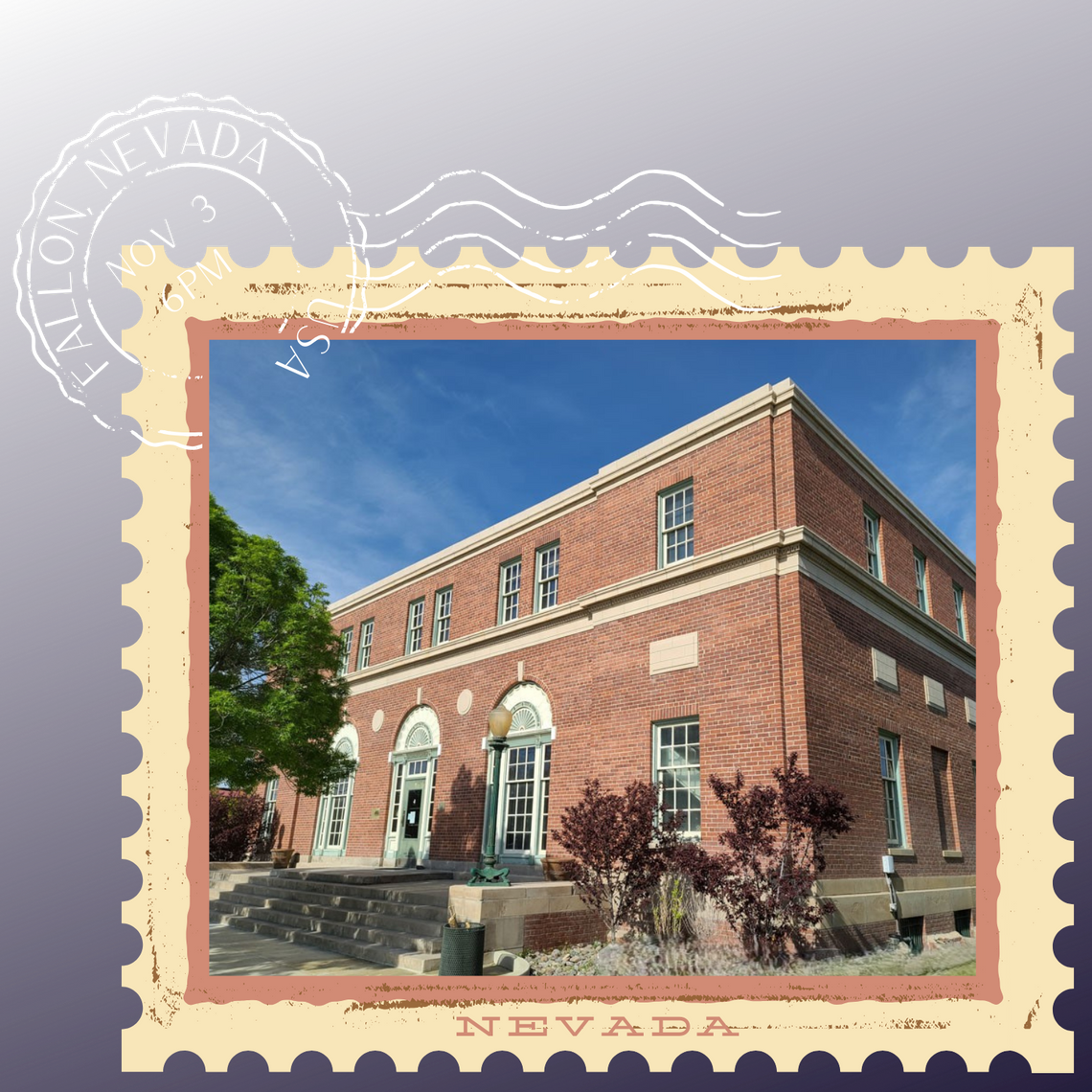
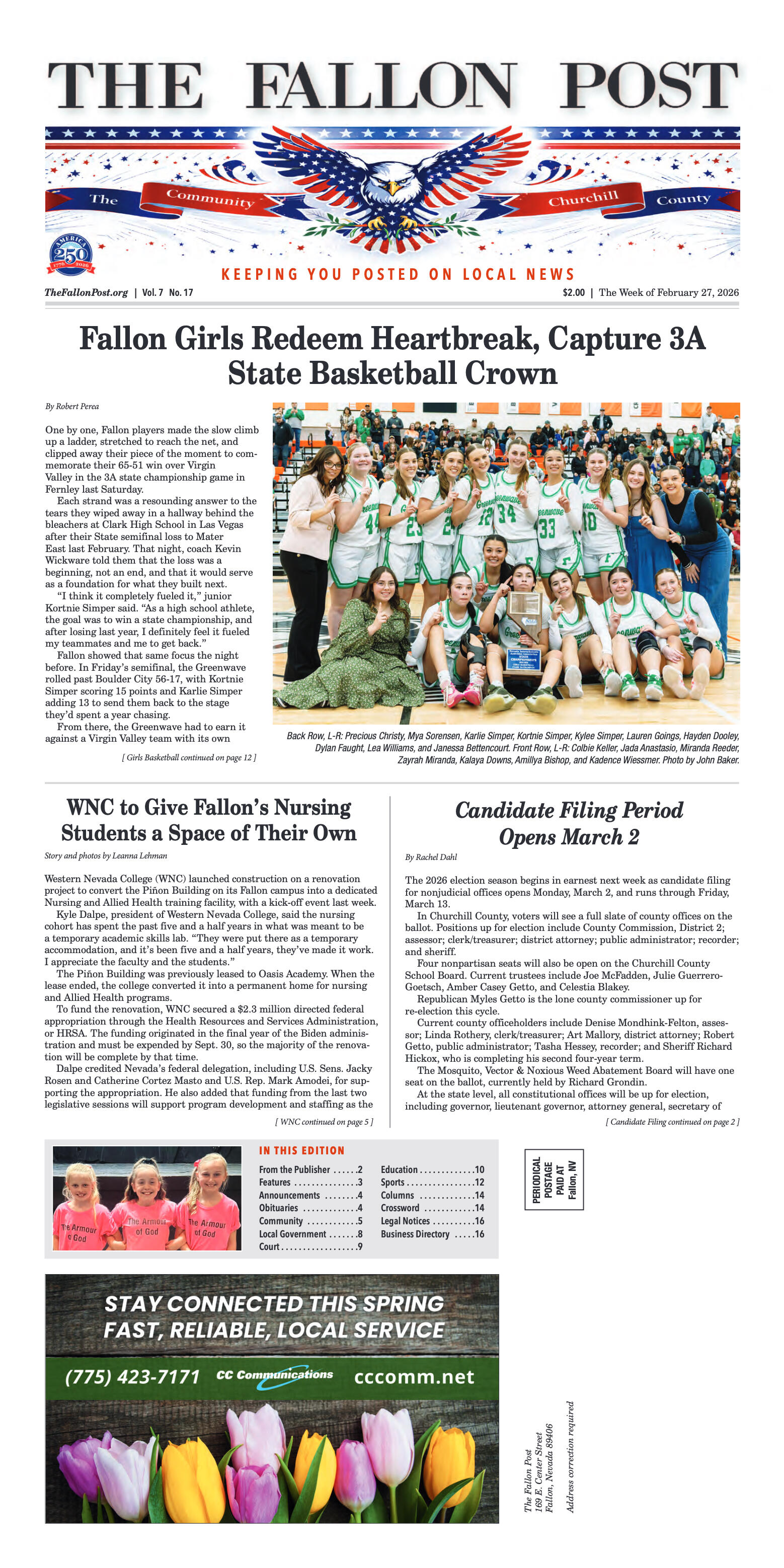
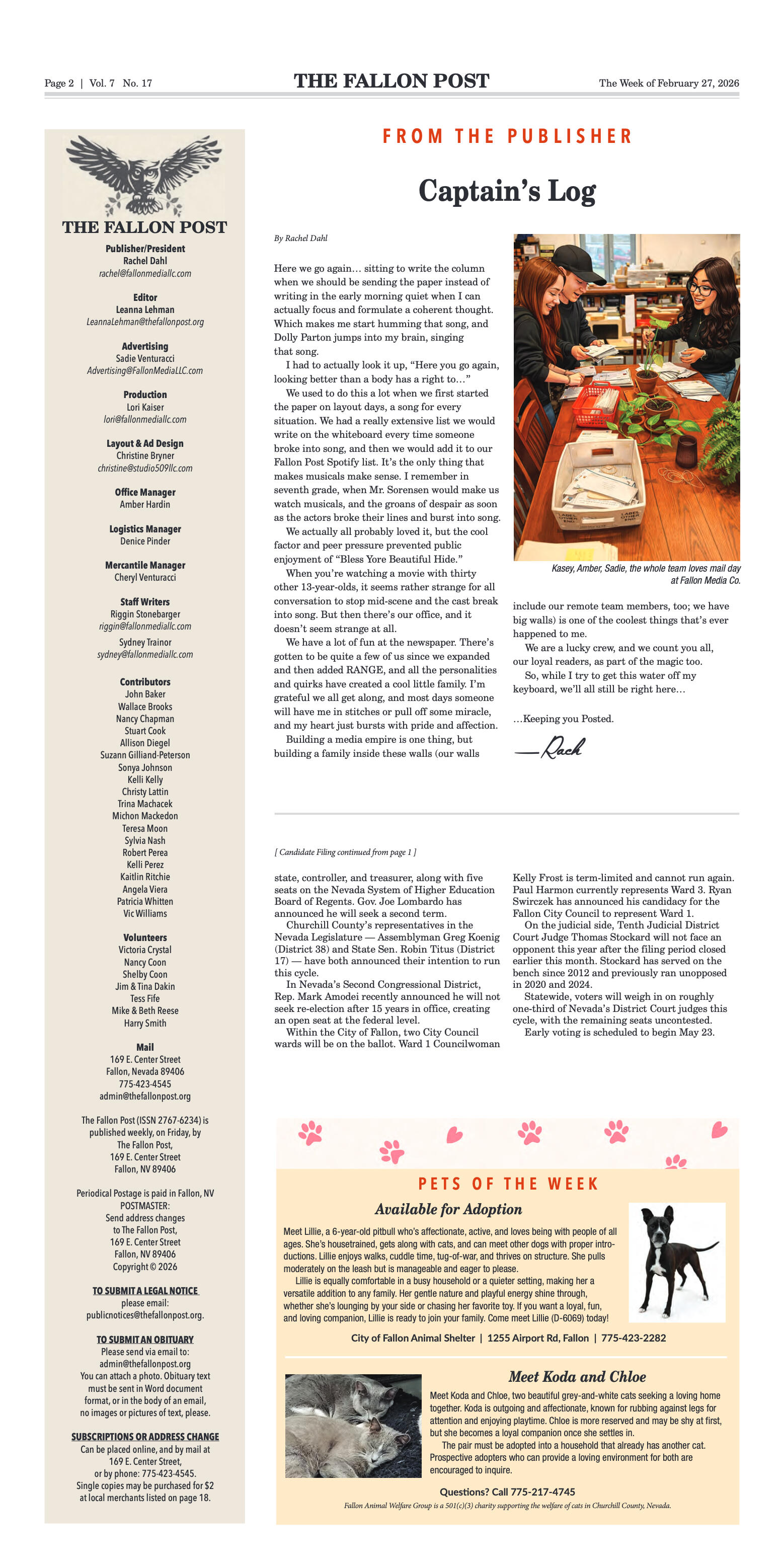
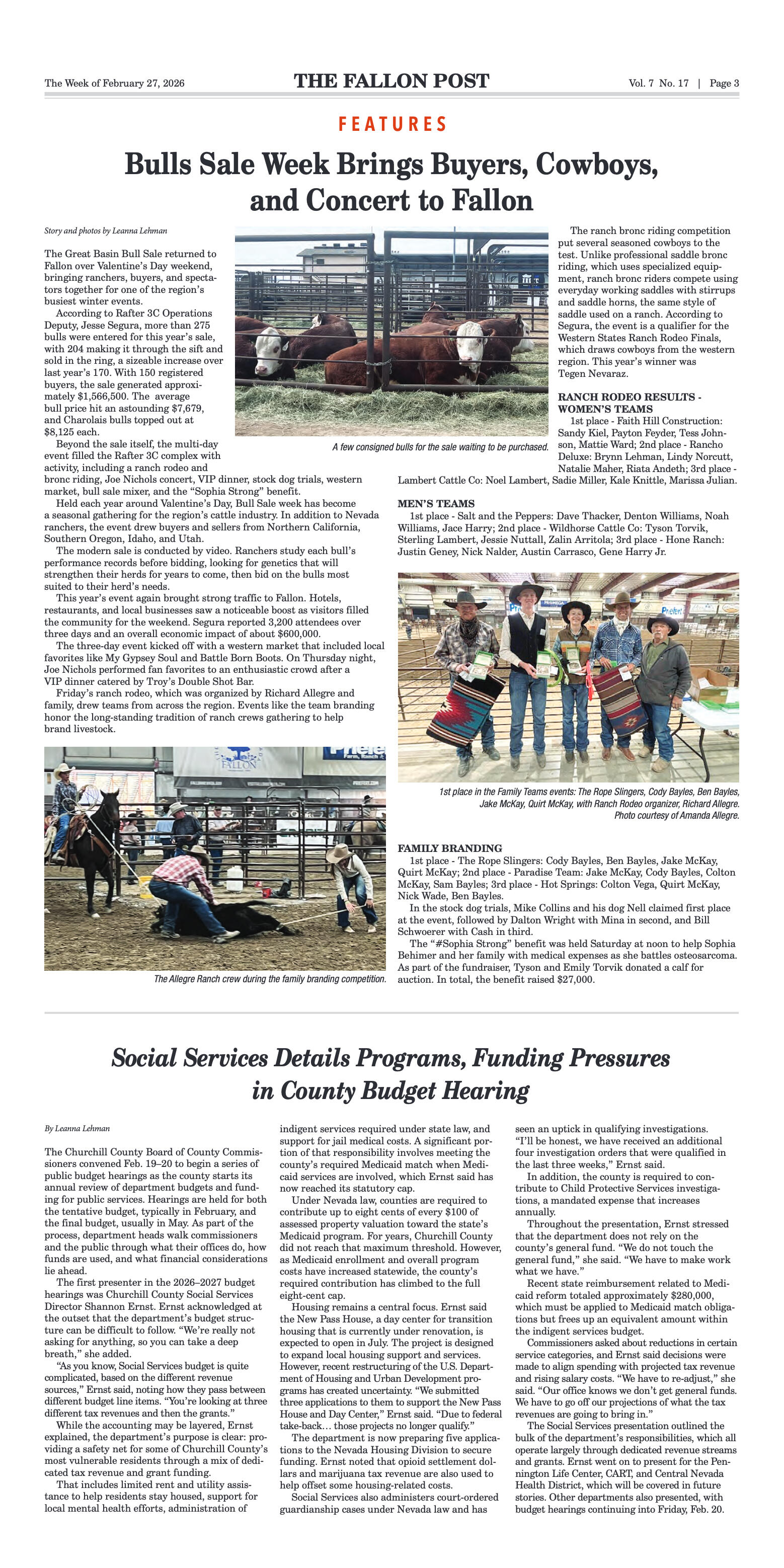
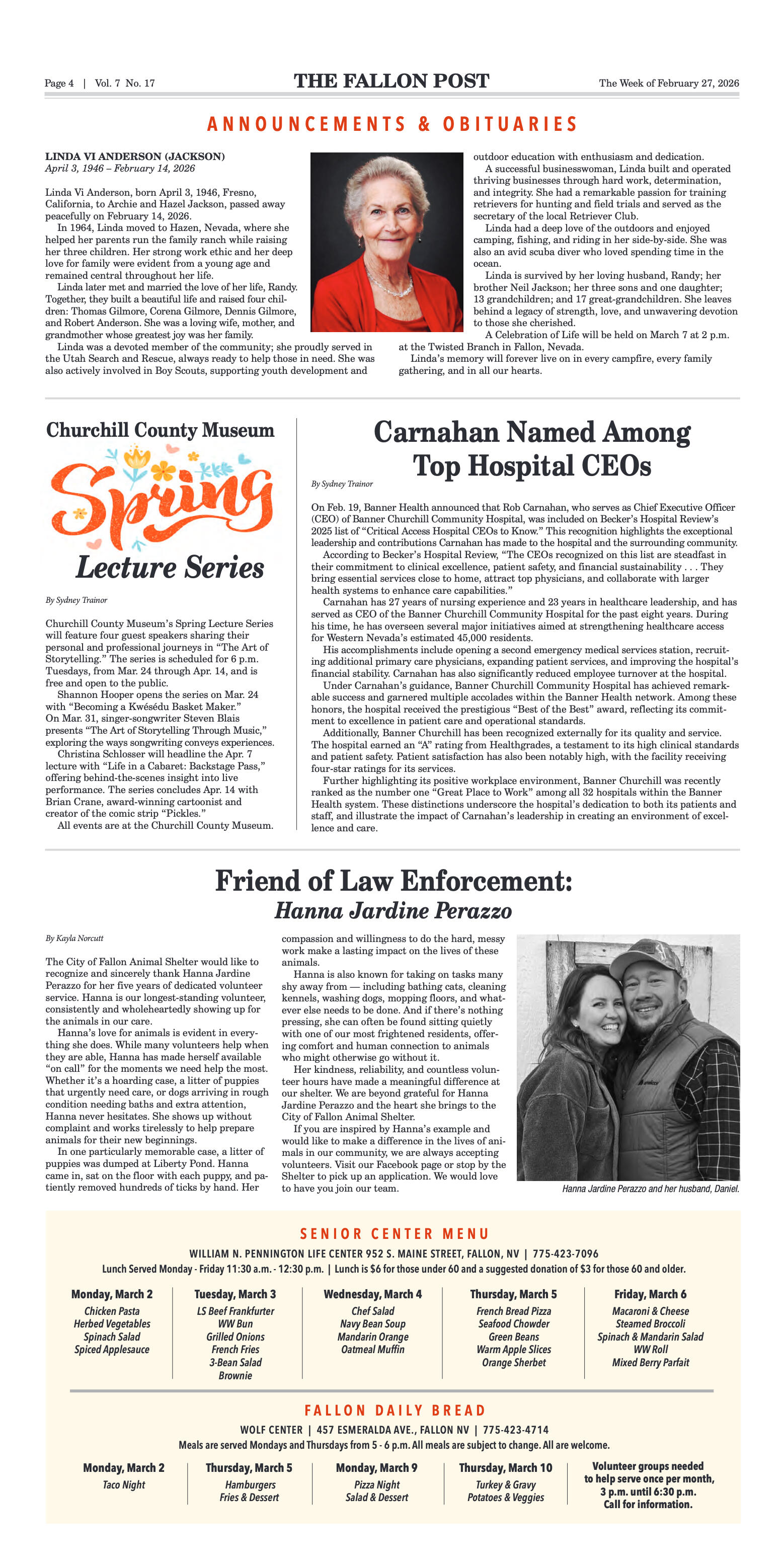
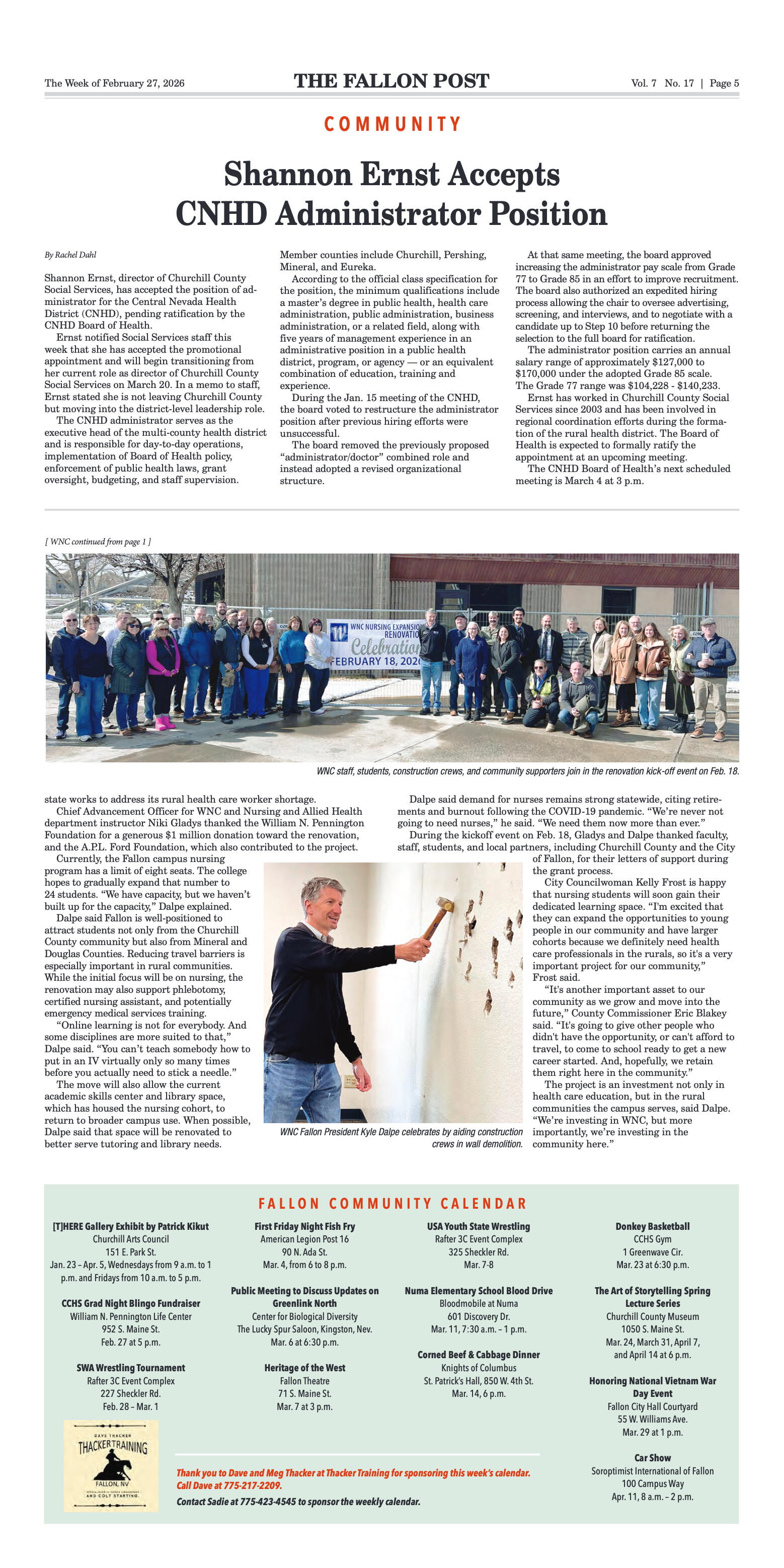
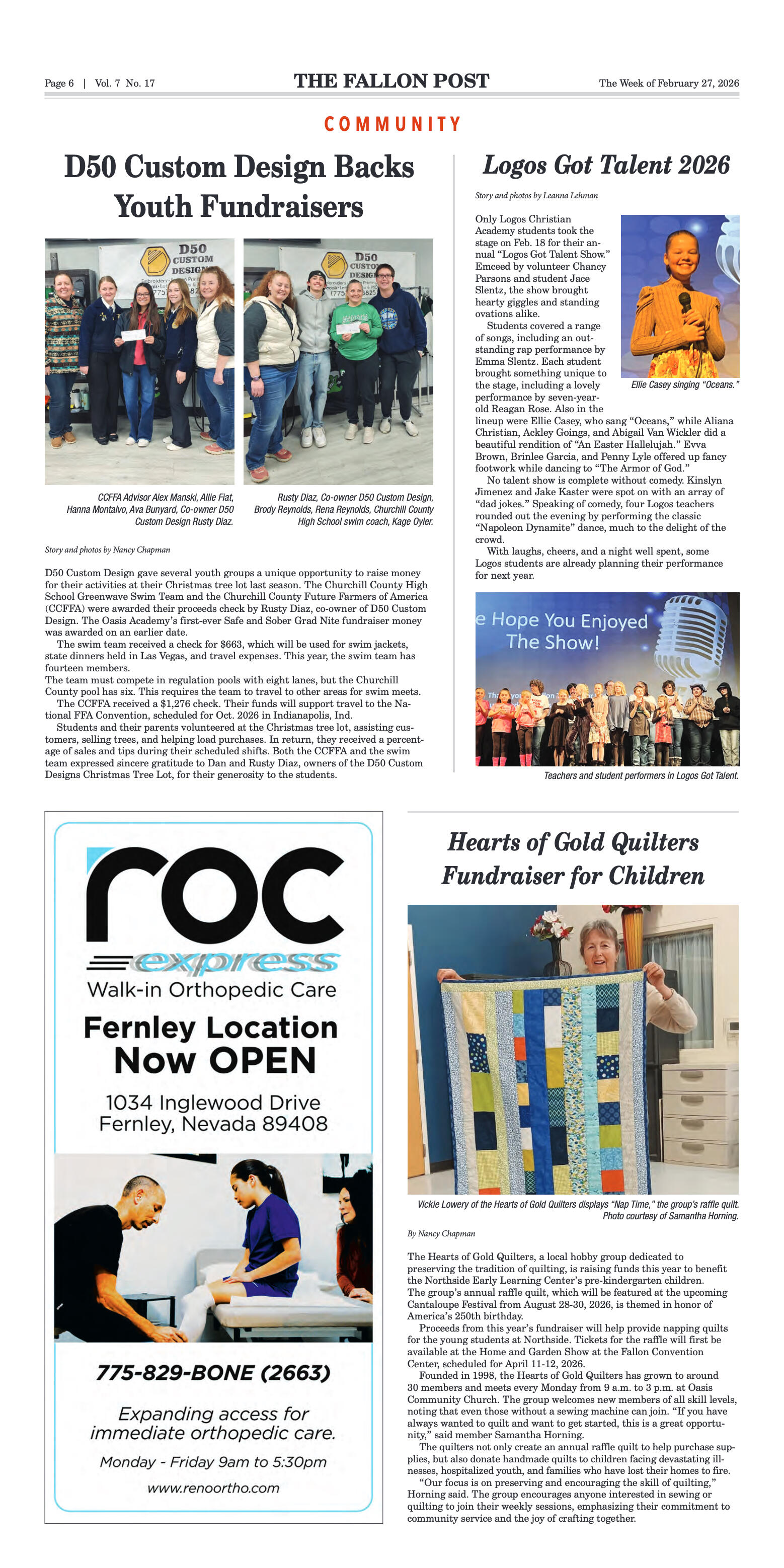
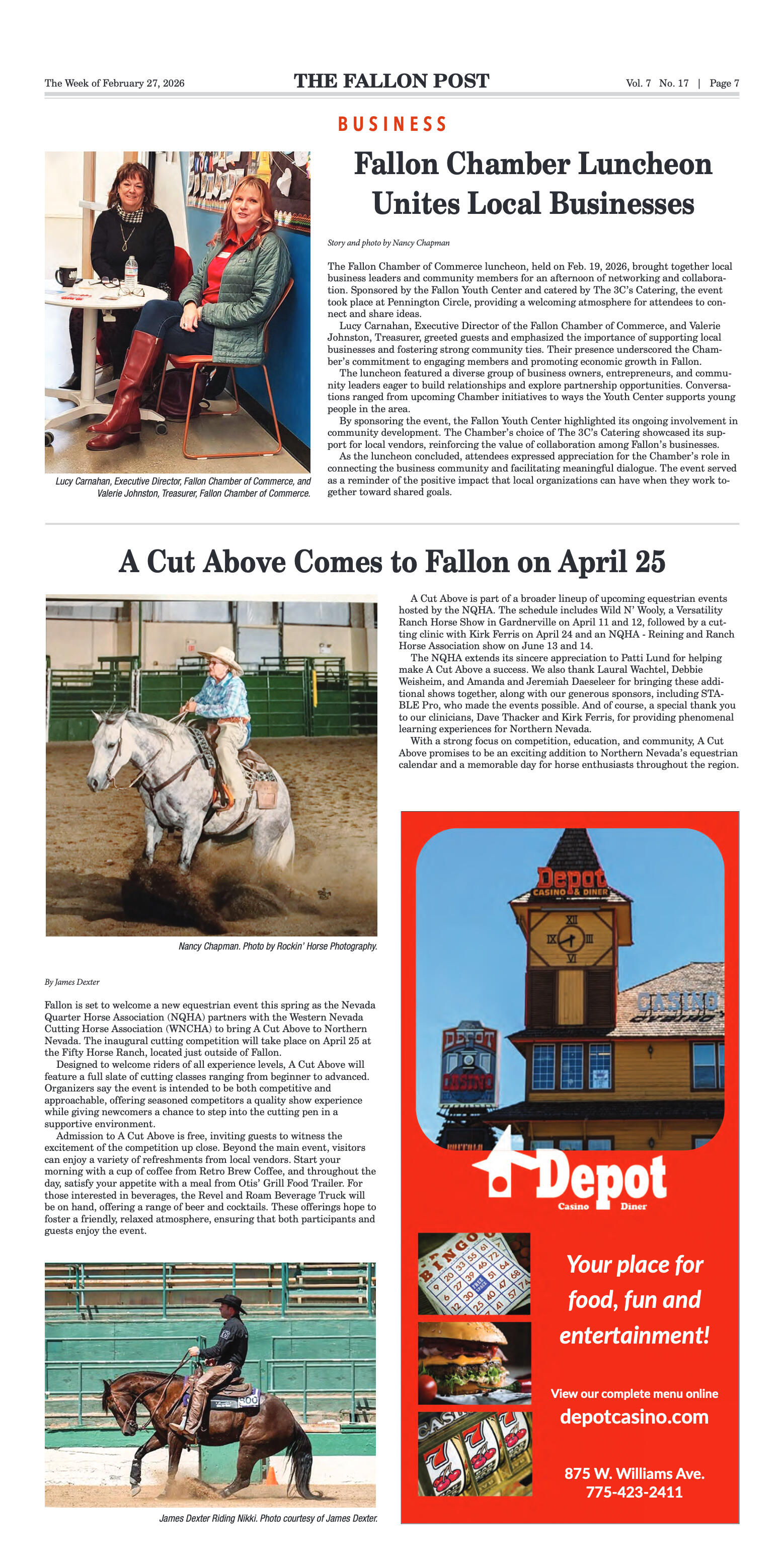
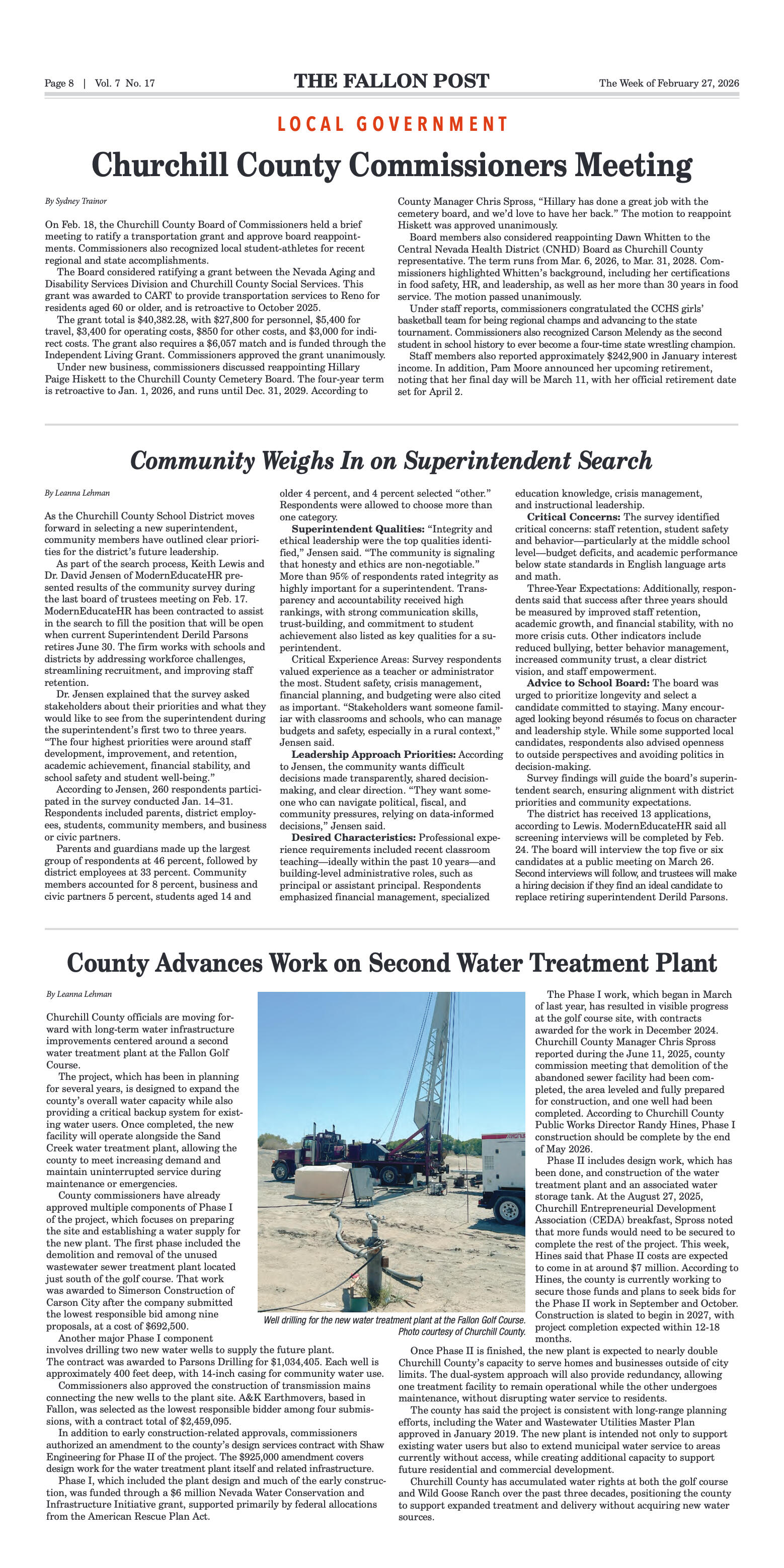
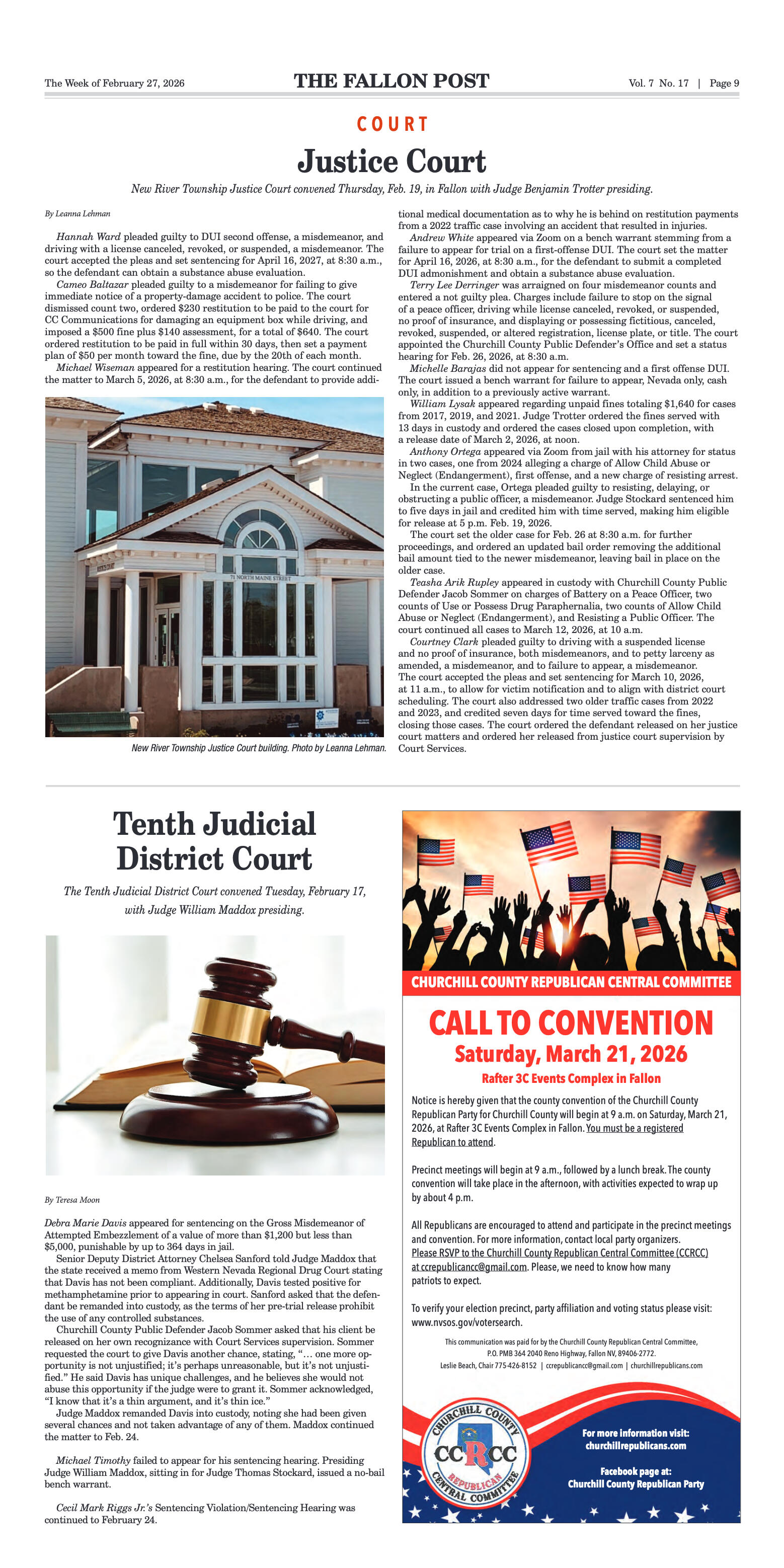
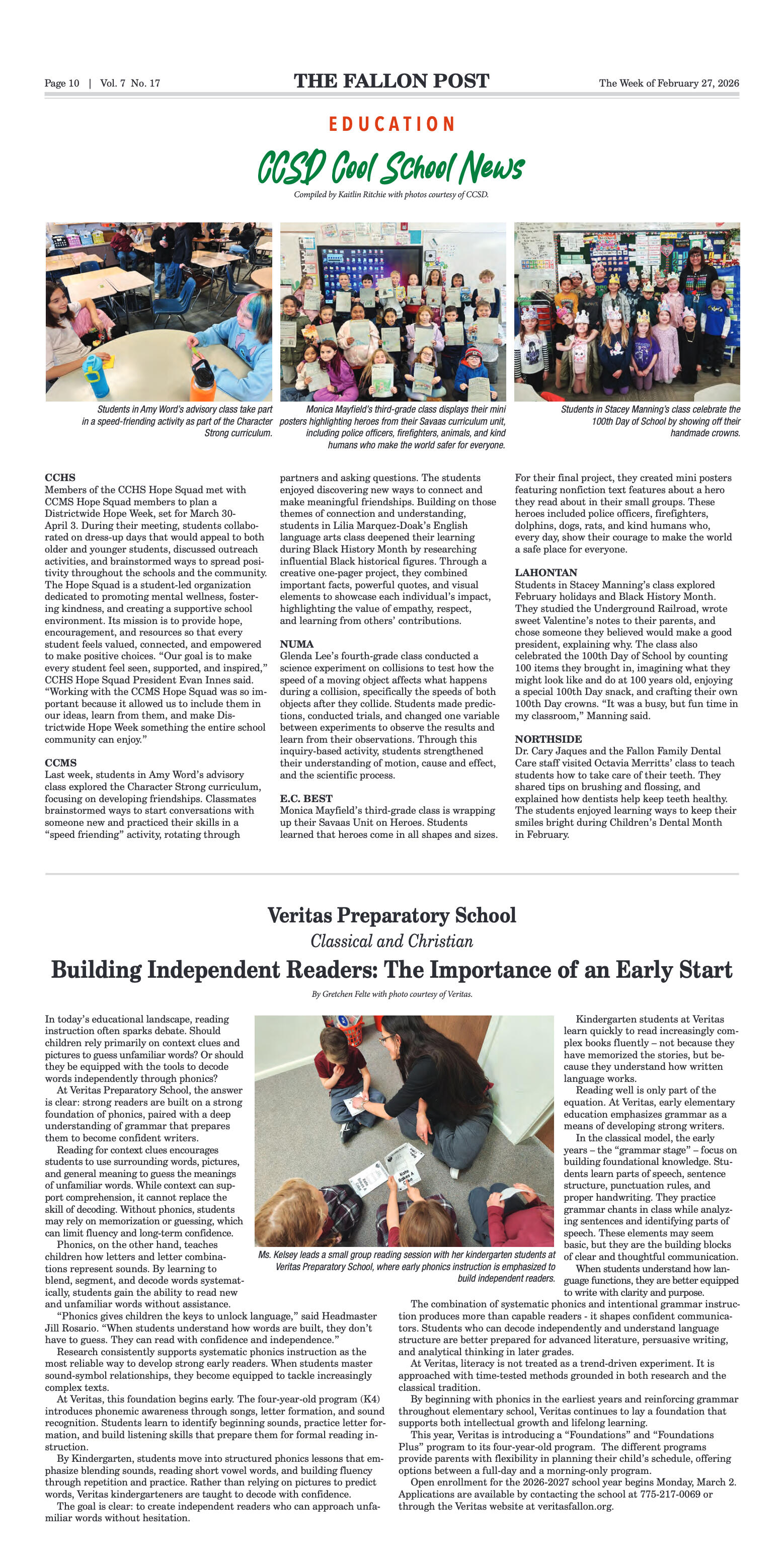
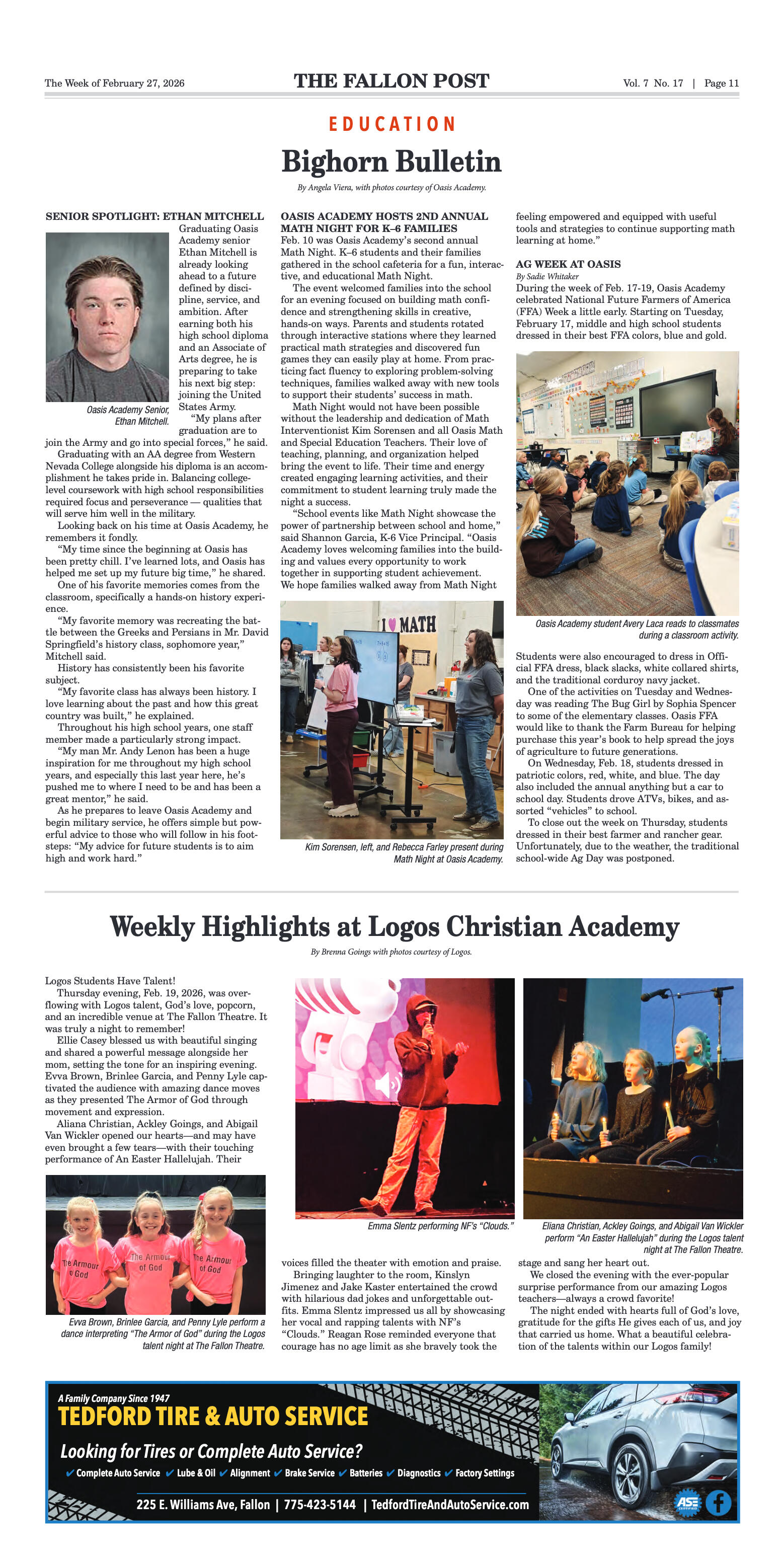
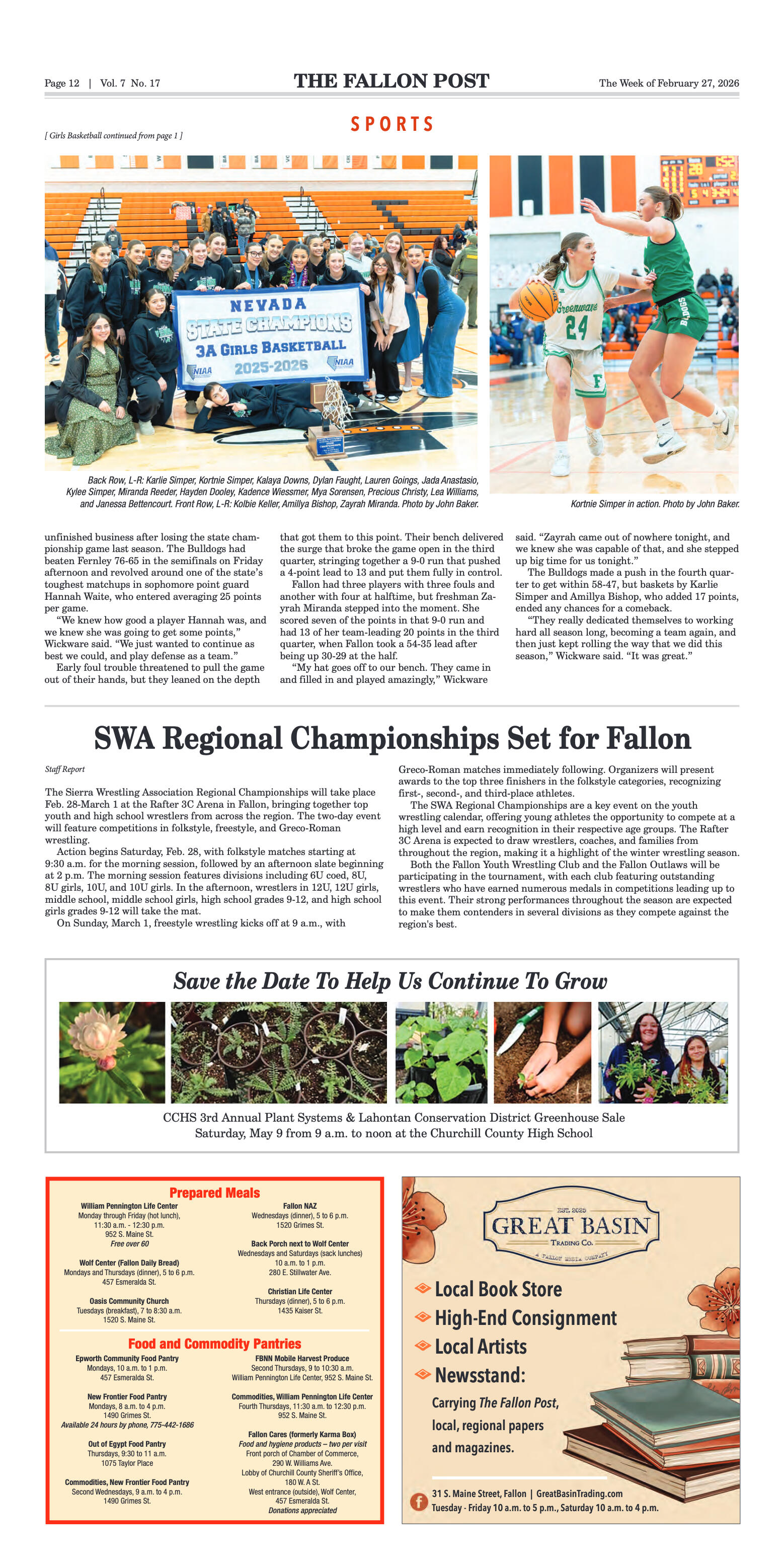
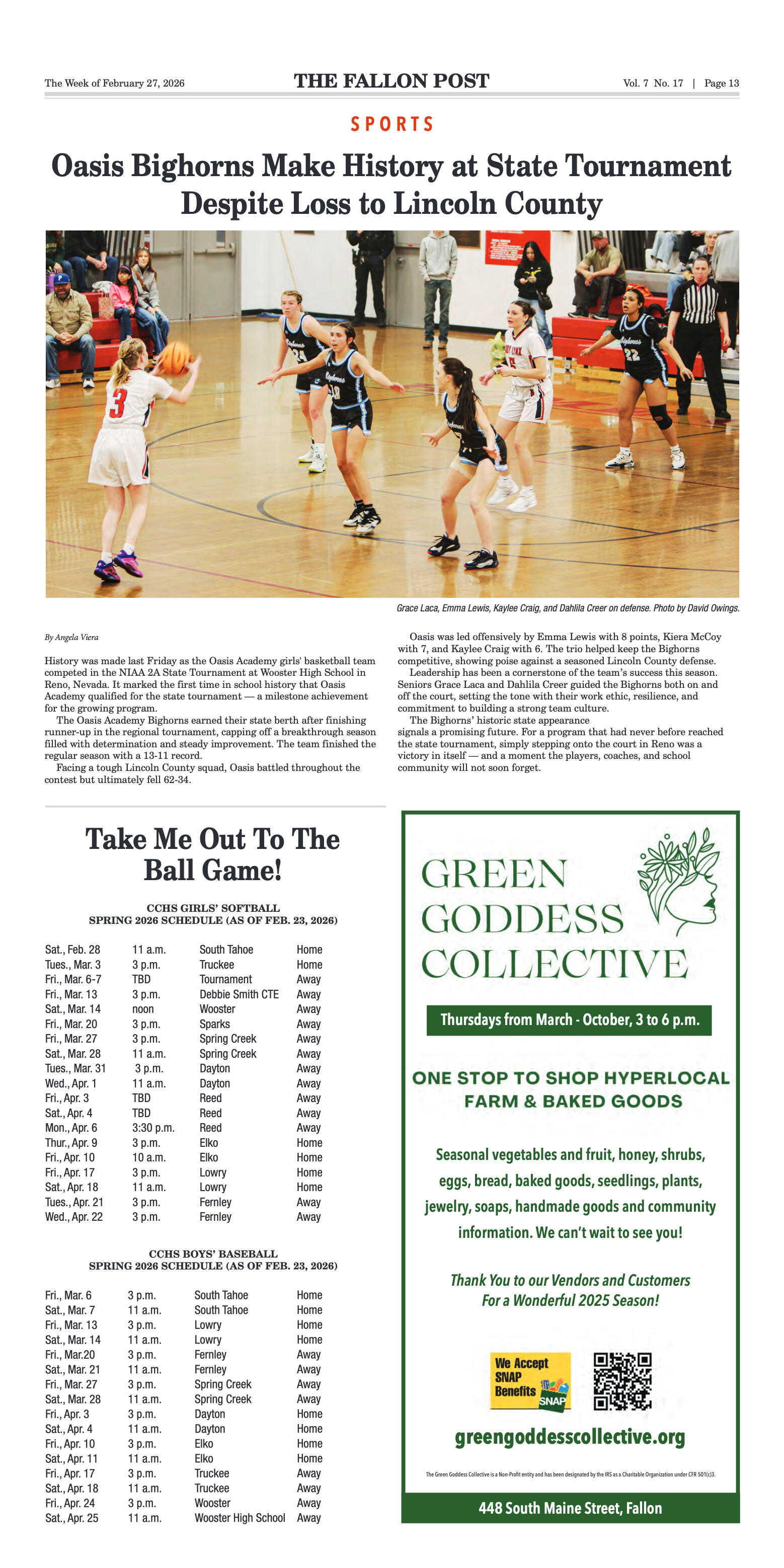
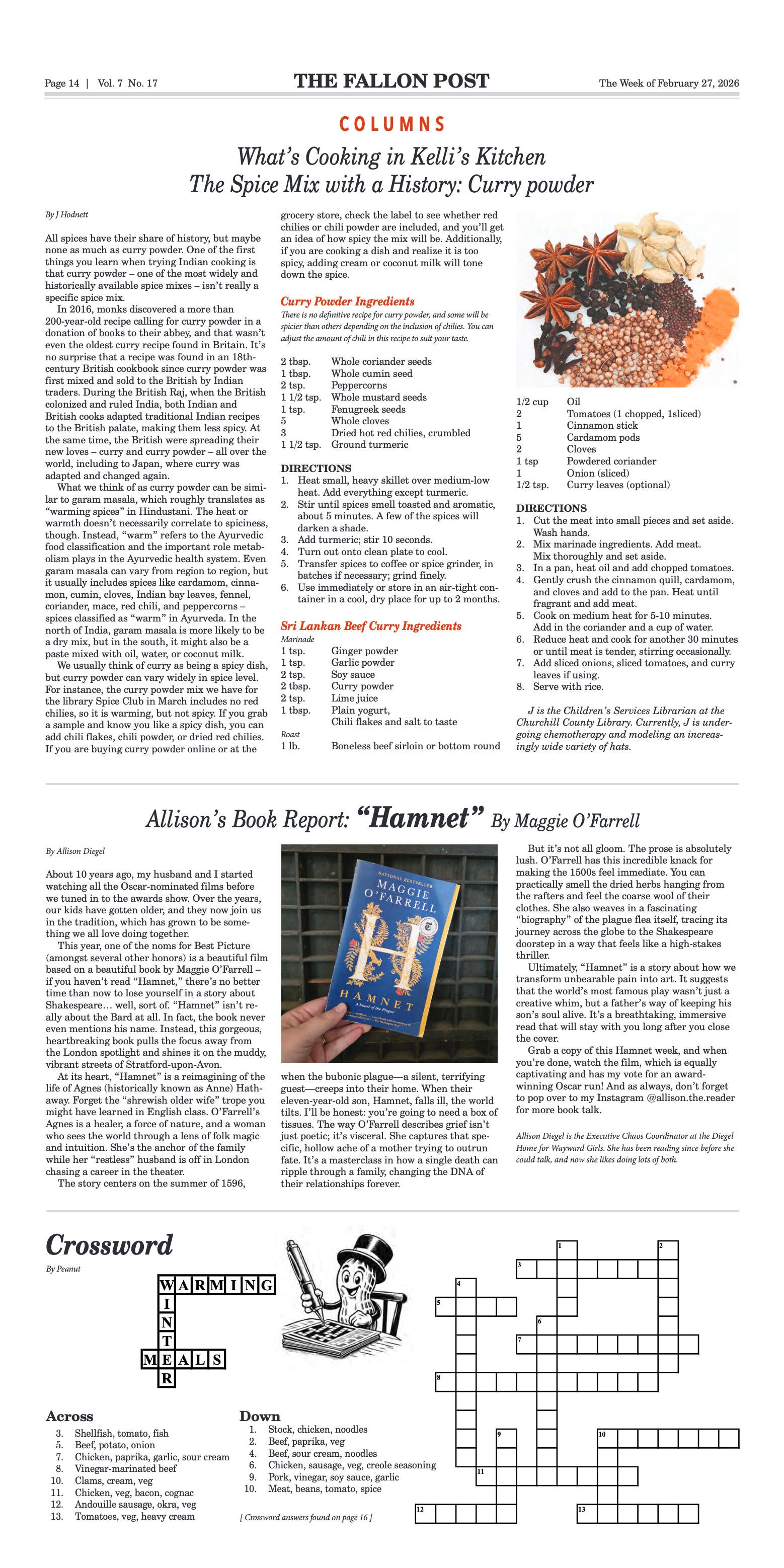
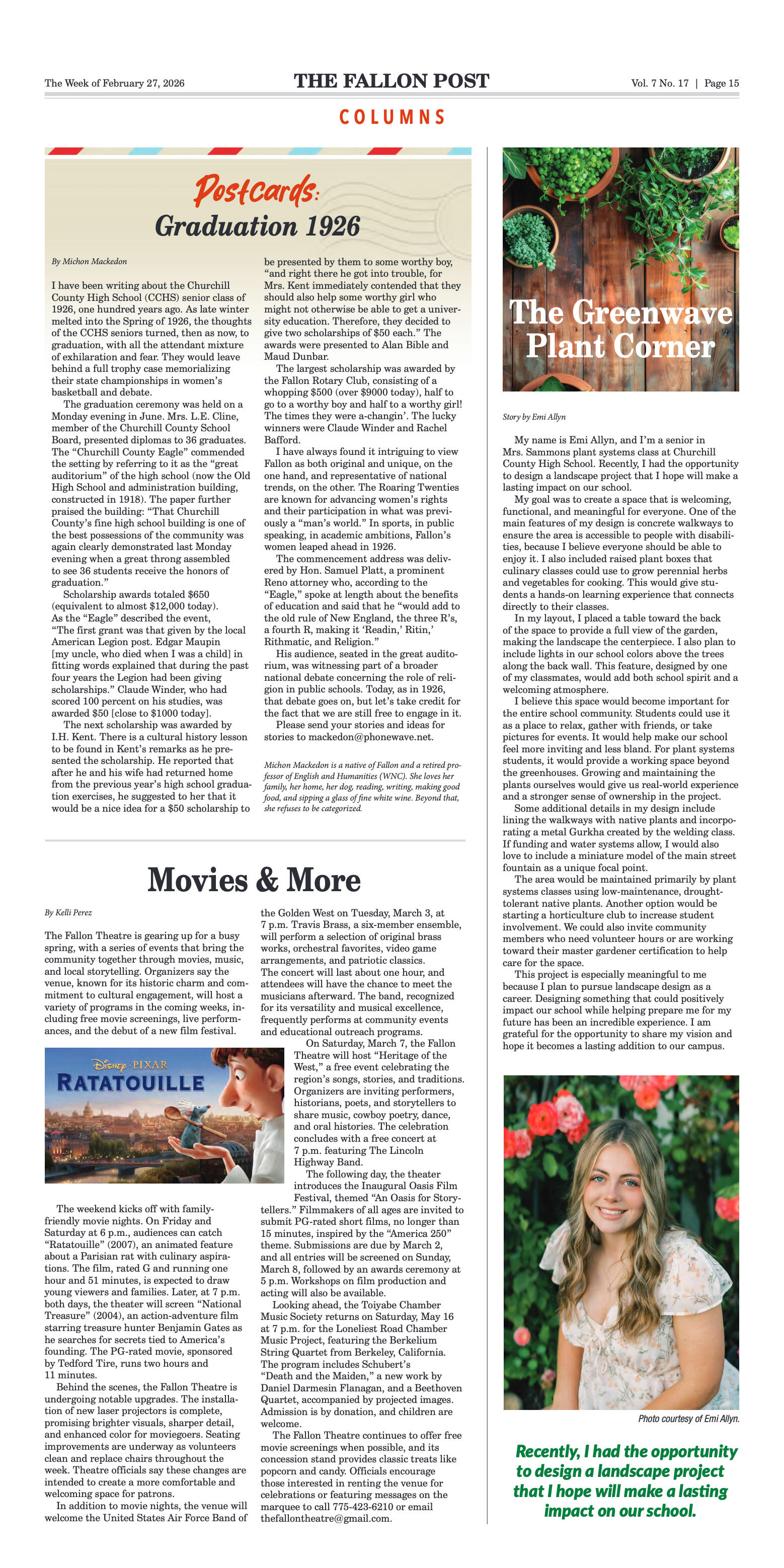






















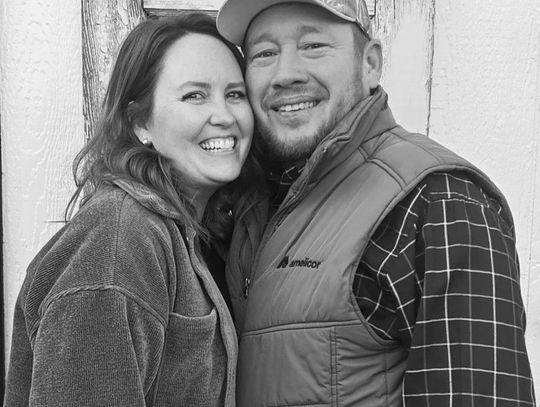

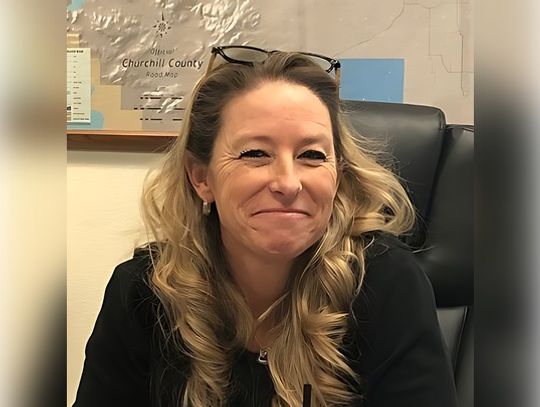
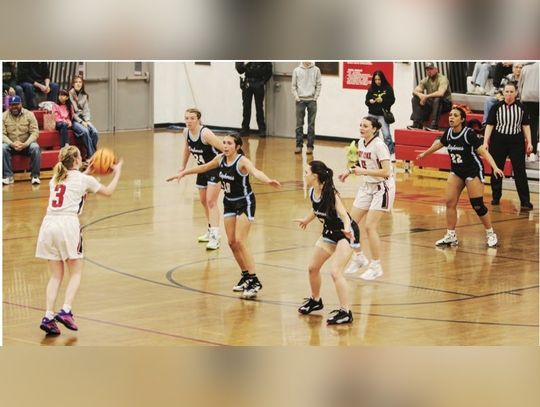

Comment
Comments